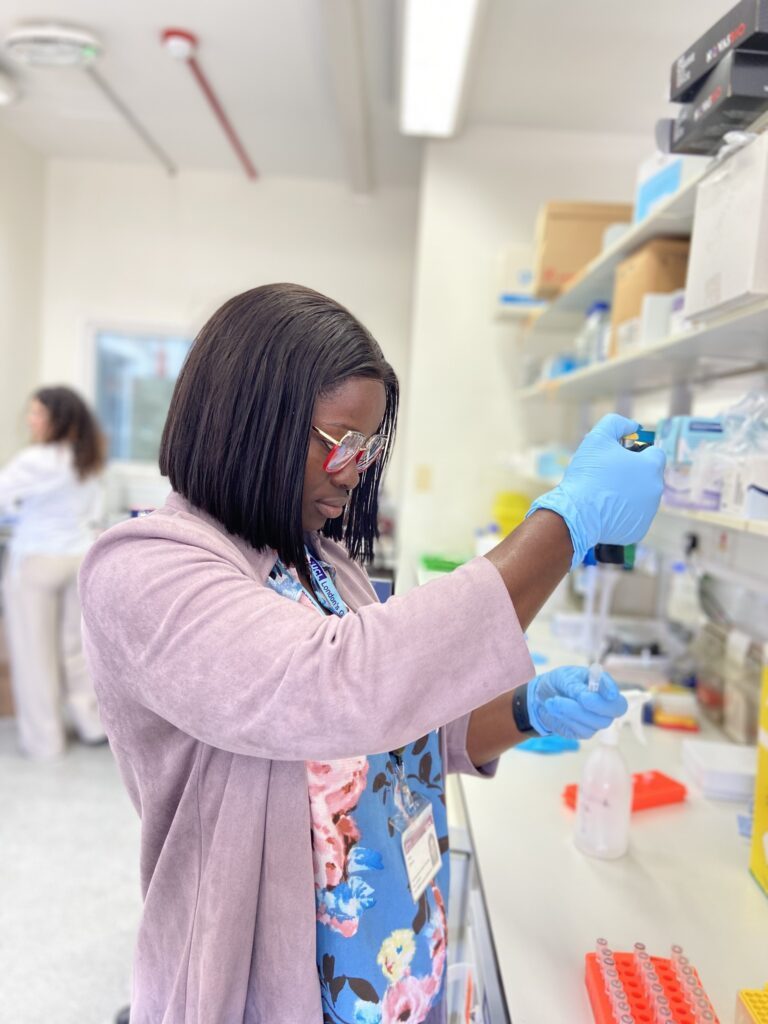Over the last two decades, we have witnessed a revolution in the research area of complex genetic diseases, including Parkinson’s disease. Great advances have been made in identifying both causal and risk variants, which have subsequently led to an improved understanding of the molecular pathways involved in disease etiology.
Around 90% of the genetic studies performed to date in the Parkinson’s disease field, and on a genome-wide scale, have been performed on European ancestry populations. The Global Parkinson’s Genetics Program (GP2) is committed to closing the gap in this disparity by increasing representation of communities that have been traditionally underrepresented in Parkinson’s research.
As part of this commitment, GP2 launched the Black and African American Connections to Parkinson’s Disease study (BLAAC PD) this year. The main goal is to dissect the genetic architecture of Parkinson’s disease in these populations and to understand if the interventions, potential targets for Parkinson’s disease treatments, or the prevention strategies that are being studied in the European ancestry populations are relevant to these populations. To achieve this, the BLAAC PD study will recruit Black and African American people with Parkinson’s disease as well as control volunteers from across the United States. Beyond genetics, this pioneering study will also serve as a foundational cohort to assess diverse aspects of Parkinson’s disease in these populations.
To date, the genetic impact on Parkinson’s disease susceptibility in Black and African American populations is largely unknown. In fact, in this context there are very few published studies in the literature, and these include less than fifty individuals. Therefore, it is imperative to fill out this gap of knowledge that exists in the field and advance research that includes Black and African American participants.
Promoting genetics research in this population has many potential benefits. It will enable the identification of a fuller range of genetic variation and could inform development of more inclusive genetic tests. This research could also help elucidate disease mechanisms and aid in more effective drug development for all communities. Additionally, fine-mapping analyses across the Black and African American populations could be extremely useful given the allelic diversity and linkage disequilibrium patterns to identify putative functional variants that can provide insights applicable to a broad disease landscape.
This pioneering research project will give rise to the generation of valuable data in a continuous effort to uncover the molecular complexity underlying Parkinson’s disease etiology.
Read more about our work with BLAAC PD.








